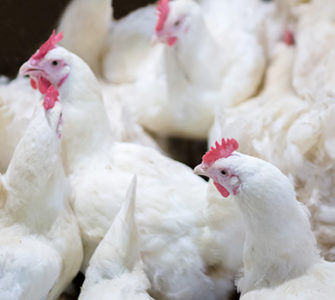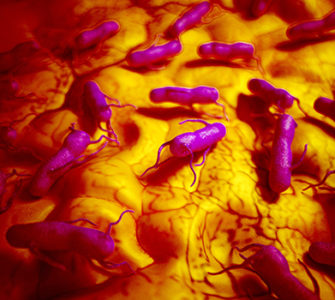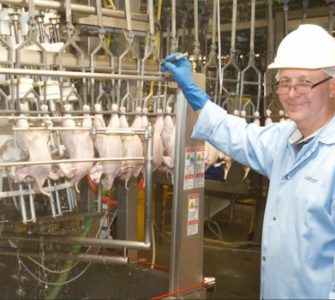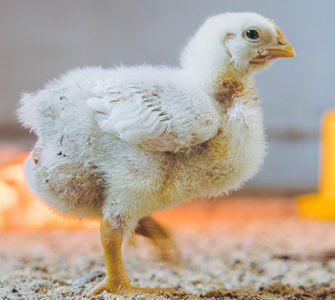Vaccinating broilers against Salmonella can help reduce pathogen’s prevalence at processing
website builder Vaccination of broilers against Salmonella can help poultry producers reduce the pathogen’s prevalence at processing and may also benefit bird performance, Kalen Cookson, DVM, director of clinical research, Zoetis, told Poultry Health Today.
Producers are under increased pressure to contain the prevalence of Salmonella at processing due to more stringent standards established by USDA’s Food Safety and Inspection Service (FSIS). “It’s put a lot more pressure than [producers] have been accustomed to,” Cookson said.
A successful Salmonella vaccination program has to start with breeders since “your broiler chick inherits sins from the breeder,” he said. That’s why most breeder flocks today receive a live Salmonella vaccine and many producers follow up with a killed vaccine.
The positive impact of vaccinating breeders against Salmonella, however, takes from six to 12 months. “In the meantime, if you need to make immediate changes, then you pretty much by default have to make those changes on the broiler side,” he said.
30% to 60% reduction
Experience with live Salmonella vaccines used in broilers indicates they can do a good job reducing levels of the pathogen at the processing plant. In fact, in field trials conducted by Zoetis over the past 18 months, vaccination of broilers yielded a 30% to 60% reduction in Salmonella at the plant based on sampling at rehang, Cookson reported.
Asked if Salmonella vaccination can positively affect broiler performance, the veterinarian indicated that it can. Both pen studies and field trials involving birds that were vaccinated then naturally exposed to wild type Salmonellae showed improved performance. In field trials, the adjusted feed conversion improved by one or two points (0.02).
It should be no surprise, Cookson continued, that young birds challenged with a pathogenic gut bacterium like Salmonella would have compromised body weight or that performance improves if vaccination takes the edge off an early challenge and minimizes Salmonella colonization.
Cookson cited other strategies — mainly in the area of gut health — that producers can implement during live production to help ensure better Salmonella control. He also mentioned that another key step is reducing or managing litter moisture. That in turn can help lower with the incidence of foot pad dermatitis — which is a route for Salmonella exposure — as well as decrease fecal contamination of feathers.
Editor’s note: This video interview, podcast and news article were developed independently by the editors of Poultry Health Today. They are presented here solely for their news value. The opinions and recommendations presented are not necessarily shared by the editors of Poultry Health Today or the interviewee’s employer.
Posted on May 24, 2018

















